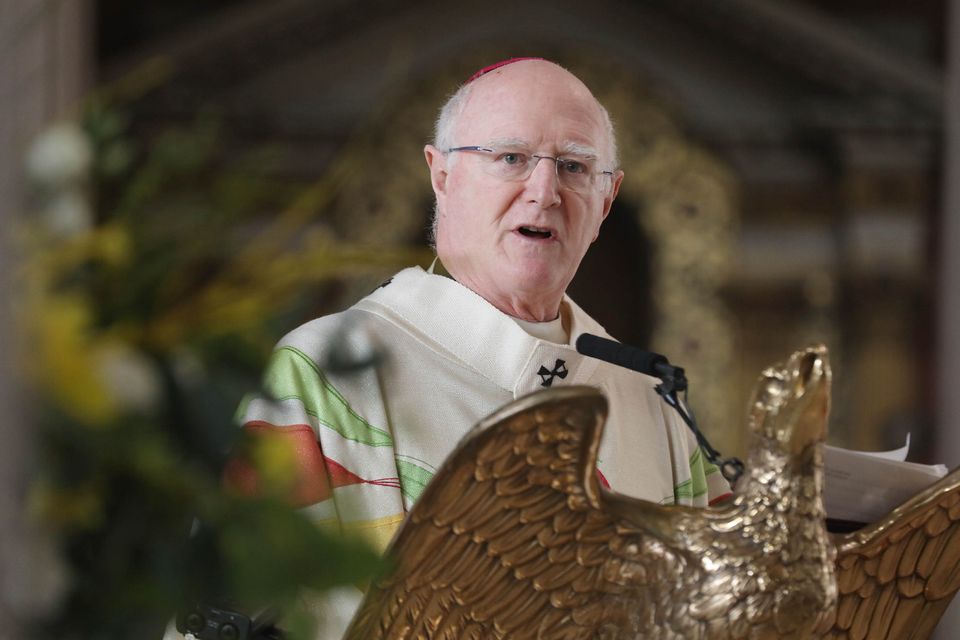
It is not possible to have ever larger parishes with fewer and fewer priests, the country’s top Catholic prelate has said.
Speaking about the vocations crisis and the “changing vision of priesthood” in Dublin’s Pro Cathedral yesterday, Archbishop Dermot Farrell said many of the pastoral approaches and strategies that worked for the “church in this land over the last two centuries no longer work in the 21st century”.
Addressing the congregation, the leader of the country’s largest diocese said: “None of us needs to be told how our church is going through a wilderness time.
“In life, crises bring people to a sense of reality – in church life it is no different,” Dr Farrell said, adding that the constraint of numbers was “bringing us to see more clearly what lies at the heart of priesthood in our tradition”.
As Christians prepare for the most sacred time of their year, he told the congregation gathered for this year’s Chrism mass: “There will remain a tension between, on the one hand, discerning where the spirit is leading us into the future and, on the other hand, acknowledging the draw of the past, and of our traditions, which have given so much expression to who we are.”
However, Dr Farrell, whose diocese encompasses 197 parishes serving more than one million Catholics, said he would like to move beyond the temptation of looking only at what has been lost, and consider what has been received, and this included becoming a humbler church.
Another aspect of this change was the greater participation of the laity in the life and ministry of the church.
“Priests and people are beginning to work in a more co-responsible way. The ‘chaplain’ who is a mother can minister in a way that complements the ministry of the priest. It is not either-or; it is both-and.”
Meanwhile, in Sligo, Bishop Kevin Doran has spoken about his concerns over assisted dying.
At the Chrism mass in the Cathedral of the Immaculate Conception, Dr Doran said it was understandable that people facing chronic or terminal illness sometimes felt they might be better off if they were dead.
“But a society which has nothing more to offer to people than to assist them in ending their own lives has really lost its way,” he said.
Through the time spent with the sick, listening to them, providing essential care, sharing memories, and, perhaps, praying with them, “we bear witness in action to the fact that there is no such thing as a life without value,” and that care for the most vulnerable is a measure of our humanity.
Doctors and nurses, chaplains and carers, family members and friends form communities of care around those who are sick at home or in hospital.
“People who are sick need to know, above all, that they are loved and that they will not be abandoned, whatever happens. That becomes especially important when there is nothing more that medical science can do,” he said.
